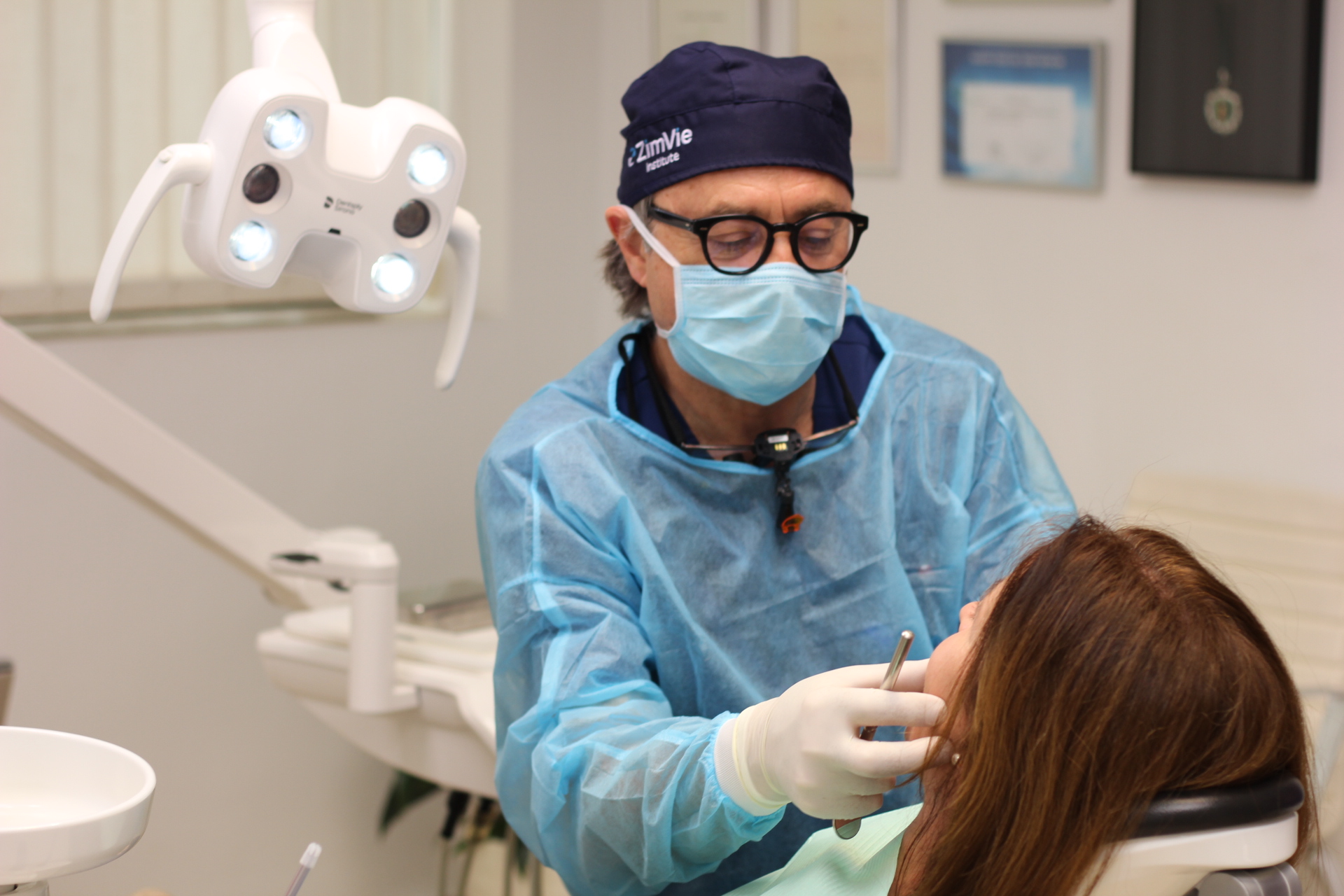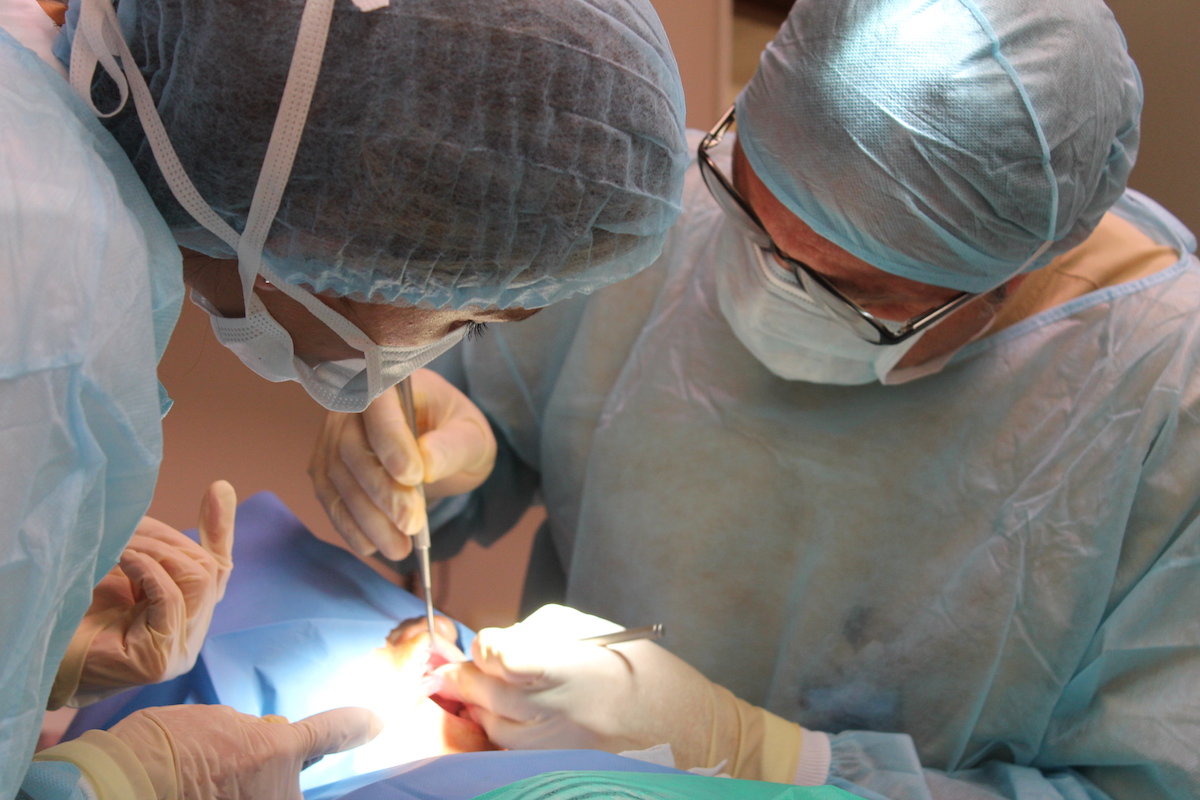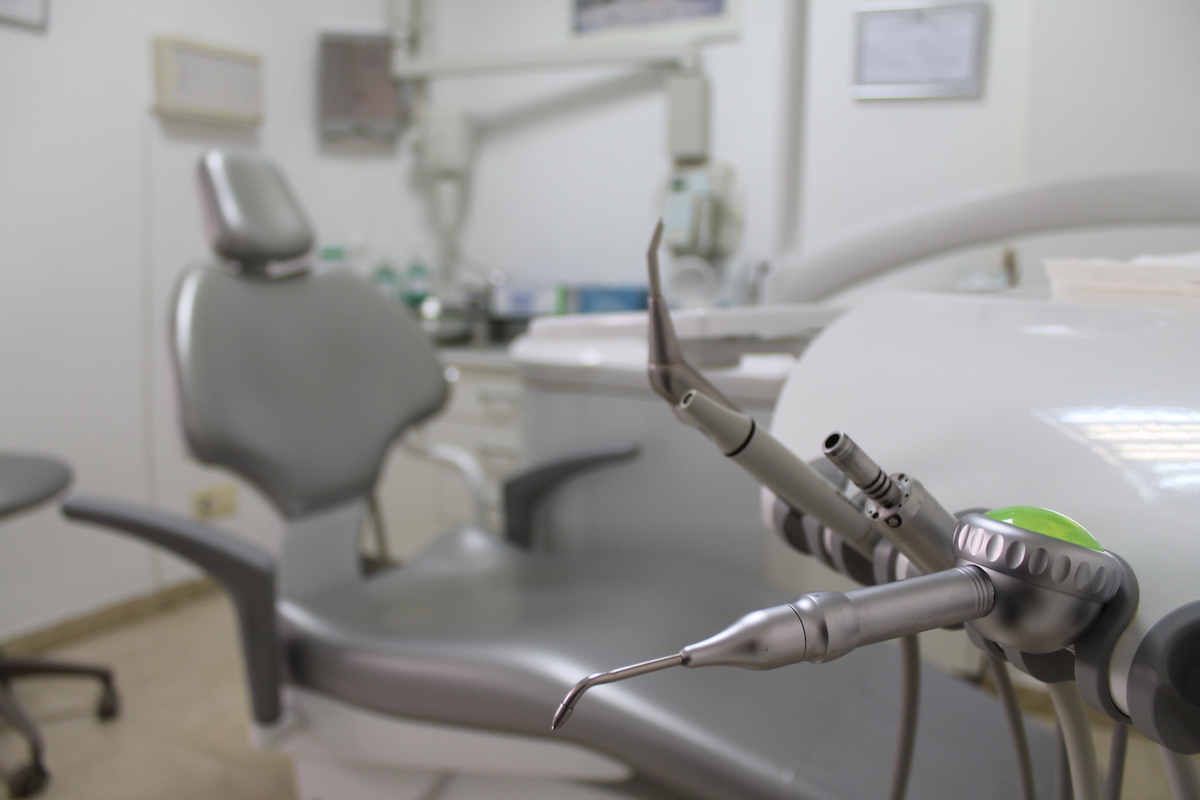Implant prosthesis
Pioneers in Valencia
By means of four implants placed in the anterior part, we place a fixed porcelain prosthesis in the anterior part and removable without clasps in the posterior part, or completely fixed on implants.
Prosthesis on implants: Partial Denture
The combined prosthesis on implants is a treatment option used when several teeth have been lost in the same area of the mouth. This technique consists of using dental implants to replace the roots of the missing teeth, and then placing a dental prosthesis that rests on the implants to replace the missing teeth.
In most cases, two or more dental implants are used to support the combined prosthesis. The implants are inserted into the bone of the jaw or maxilla, and then integrate with the bone over time in a process called osseointegration. Once the implants have fully integrated with the bone, the dental prosthesis is placed on top of them.
Combined implant-supported dentures can be an excellent option for those who have lost several teeth in the same area of the mouth, as they can provide a similar appearance and function to natural teeth. It is also a more durable and stable option than removable dentures, as the implants provide a solid and stable foundation for the denture.
There are several different types of implant-supported combined dentures, including fixed dentures and removable dentures. Fixed prostheses are permanently attached to the implants and cannot be removed without the help of a dentist. Removable prostheses, on the other hand, are attached to the implants by a clamping system and can be removed for cleaning and maintenance.
Prosthesis on implants: Full denture
For all denture wearers it is a very important functional change. It consists of the placement of a lower denture connected to three implants that guarantees a great improvement in the patient’s quality of life.
Dentures are dental prostheses used to replace missing teeth and restore chewing function and esthetics of the mouth. They are made of strong, durable materials, such as resin or acrylic, and can be removable or fixed.
Removable dentures are the most common and are used when the patient has lost all or most of his or her teeth. These dentures are attached to the mouth by a plastic base that fits over the gum and jawbone. They may also have clasps that attach to the remaining natural teeth to ensure stability.
On the other hand, fixed dentures are more expensive and require a surgical procedure for placement. These prostheses are anchored to the jawbone by screws or dental implants and cannot be removed by the patient. Although they are more stable and comfortable than removable dentures, they require more rigorous maintenance and good oral hygiene to prevent infection.
In addition to restoring chewing function and esthetics of the mouth, dentures can also improve pronunciation and quality of life for people who have lost their teeth. However, their use requires a period of adaptation, as they can affect the sensation and ability to perceive food flavors.
It is important to note that dentures require special care to prolong their useful life. They should be cleaned daily with soft toothbrushes and non-abrasive toothpastes to avoid damaging the surface of the prosthesis. In addition, it is important to visit the dentist regularly to adjust the denture and detect any oral problems or diseases early.
In summary, dentures are an excellent option for restoring chewing function and esthetics of the mouth in people who have lost their teeth. Although they require a period of adaptation and special care, they can significantly improve the quality of life of people who wear them.



Fixed dental IMPLANTS
Dental implants. What are they?
Dental implants and dentures are two common options for replacing missing or damaged teeth. Each has its own advantages and disadvantages, and it is important to know the differences between the two to make the most appropriate decision for each individual case.
Dental implants are devices that are inserted into the bone of the jaw or maxilla to replace the root of the missing tooth. They are made of titanium or other biocompatible materials that integrate with the bone over time. Once the implant has integrated with the bone, a dental crown is placed on top of the implant to function like a natural tooth. Dental implants are an excellent option for those who want a permanent, long-lasting solution to replace one or more teeth.
Dentures, on the other hand, are removable devices used to replace several teeth or the entire denture. They are made of materials such as acrylic, resin and metal, and are fitted to the patient’s gum using a fastening system. Dentures can be partial or complete, and can be a more affordable and less invasive option for replacing teeth than dental implants.
Both options have advantages and disadvantages. Dental implants offer greater stability and durability, and can help prevent bone loss in the mandible or maxilla. However, they require surgery and a period of healing time before the dental crown can be placed on top of the implant. On the other hand, dentures are a more affordable and less invasive option, but may not be as stable and durable as dental implants.
In general, the choice between dental implants and dentures will depend on several factors, such as budget, the patient’s dental health and individual preferences. It is important to discuss the options with a dentist or dental implant specialist to determine which option is best for each individual case.


